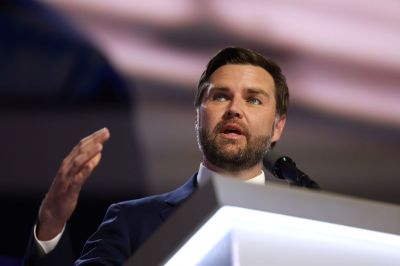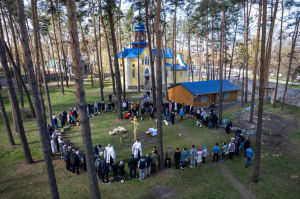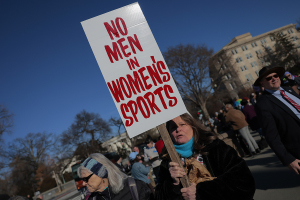JD Vance: Isolationist or rustbelt advocate?

After former President Donald Trump announced that Ohio Senator JD Vance would be his running mate, journalists and media outlets immediately tried to brand the 39-year-old senator as an isolationist. But the charge of isolationism against Vance is a canard; it fails to capture the nuances of Vance’s foreign policy and the deeply rooted convictions. Far from being an isolationist, Vance is an advocate of a pragmatic prioritization of American interests, starting at home and spreading across the world, that reflect the concerns of the average American — concerns he knows all too well.
Vance chronicled his upbringing in Middletown, Ohio, a once-thriving industrial town that has faced economic decline, in his 2016 book Hillbilly Elegy. Where Vance grew up, poverty was “the family tradition” and alcoholism and drug abuse were rampant, both in his family and across the broader community.
Growing up in the Rustbelt, Vance came to see, firsthand, how the spread of globalization and shifting economic landscapes left many working-class communities behind. For residents of these areas, there is a strong disconnect between their daily struggles and, say, the federal government’s international expenditures. Billions of dollars in foreign aid and military interventions abroad are difficult to reconcile with local job losses, decaying infrastructure and the opioid crisis. Resentment starts to build.
Take, for example, a recent tragedy in his own state of Ohio. Early last year, a freight train carrying hazardous materials derailed in East Palestine, Ohio, releasing toxic chemicals into the community. The derailment ravaged the town, and its residents are still reeling from the noxious effects of the chemicals released by the derailment.
Yet despite such a terrible, devastating disaster, President Biden did not visit the Ohio town until nearly a year after the derailment. While Americans were suffering in Ohio, the President was sending billions of dollars in aid to Ukraine in support of their war effort against Russia. Many Americans are frustrated with this disconnect; they want a government that looks inwards before it looks outwards. In JD Vance, they have found their greatest advocate.
Vance might lean towards an isolationist worldview, but it is one borne directly out of his experience in middle America and his relentless fight for the common man. It is not the isolationism borne out of the forever wars in Iraq and Afghanistan, where so many protested our overseas involvement in wars that came at a high price in blood. Rather, Vance advocates for a foreign policy approach that puts the national interest first.
That is why, for instance, Vance rightly identifies China as America’s most pressing foreign policy challenge. In an interview with Sean Hannity shortly after he was picked as Trump’s VP, Vance said that China is “the biggest threat to our country” and that the United States is “completely distracted from it.” An aggressive, expansive China, unchecked by the United States, would negatively impact the lives of the average American. By identifying China as our greatest threat, Vance signals his commitment to an America First foreign policy.
Vance has also been a staunch supporter of Israel. He has said that a big part of the reason why Americans care about Israel is for its religious significance to Christians as the birthplace of Christianity. In the aftermath of the 10/7 Massacre, Vance has criticized the Biden administration’s withholding and delaying of precision weapons shipments to Israel, noting that the policy was “fundamentally incoherent.” He has repeatedly called for Israel to be allowed to finish the job with Hamas, so that it could shift its focus to continuing the Abraham Accords and establishing a new era of peace, prosperity and alliances within the Middle East.
But accomplishing these foreign policy goals requires unleashing American industry, especially its defense industry, which is heavily situated across the Rustbelt. Vance joins Trump’s call for the urgent need to revive the defense industrial base, which would be welcome news to so much of middle America, the home of many weapons production facilities. Iron Dome missiles, for instance, are made for US and Israeli batteries in Arkansas. Reinvigorating the defense industrial base can breathe new life into economically distressed regions, particularly those in the Rustbelt, which have suffered from decades of deindustrialization.
JD Vance has been forged in the fires of Middletown’s factories, nourished by the hopes of families in East Palestine, and molded by a life spent alongside the average American. Far from being an isolationist, Vance is making the case for a strong America built on the bedrock of its resilient heartland. As we near one of the most consequential elections of modern US history, JD Vance reminds us that true greatness begins at home.
Luke Moon is Executive Director of the Philos Project, and organization committed to promoting positive Christian engagement in the Near East.



























